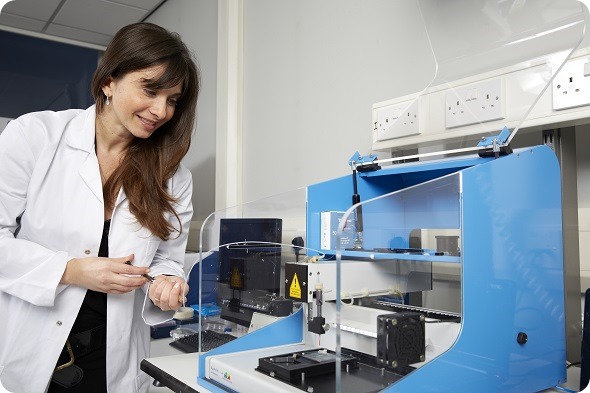An innovative technology pioneered by Sheffield Hallam University academics can detect the presence of a range of illegal and designer drugs from a single fingerprint, which could be a valuable new tool in bringing drug dealers and other criminals to justice.
The journal 'Scientific Reports' has published a new paper confirming the technology, known as Matrix Assisted Laser Desorption Ionisation Mass Spectrometry Imaging (MALDI-MSI), can detect the presence of cocaine, THC (the chemical present in marijuana), heroin, amphetamine and other designer drugs from a fingerprint.

The paper also points to the possibility of being able to use the methodology developed to detect drug use, through analysing secretions found in a fingerprint.
The paper is the work of Sheffield Hallam University, the Department of Fingerprint Research at the Netherlands Forensic Institute and the Centre for Applied Science and Technology in the Home Office.
Dr Simona Francese at Sheffield Hallam University has developed the technology, which is able to be carried out in conjunction with crime scene investigation methods used by the Police.
Dr Francese’s team can detect traces of toiletries, cleaning products, the presence of caffeine, medications, condom lubricants and even the sex of a person. This kind of information could be vital in building a forensic picture of a suspect.
The technique has received funding from the Home Office since 2011 and is currently being trailed at crime scenes in collaboration with West Yorkshire Police. The fact that it can detect a whole range of illegal drugs is further evidence that the ground-braking technology could become a vital tool in fighting crime.
“Our research proves that a whole range of drugs are detectable from a single fingerprint using MALDI-MSI. Anything from cocaine, heroin, cannabis and other designer drugs can be traced using our technology." said Dr Simona Francese, who has been working on the technology since 2010.
Dr Francese added "Proving that someone had come into contact with these kind of substances could be a major tool for forensic investigations, particularly if they involve suspects coming into contact with illegal drugs.
We want to see the technology integrated into standard forensic procedures at scenes of crime across the country. This is another step closer to our aim of seeing years of research and development come to fruition and change lives for the better.